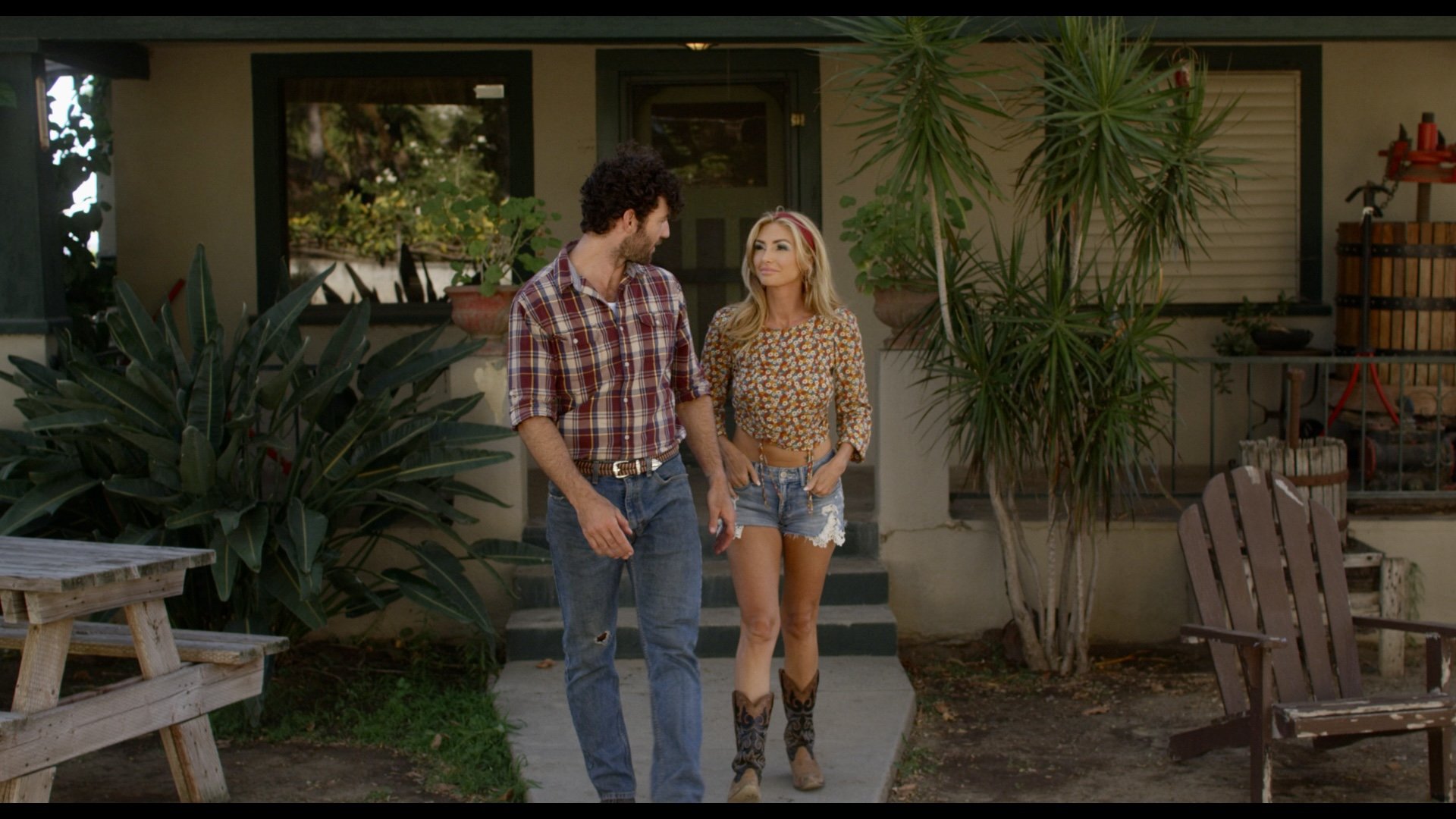Wineville marks the directorial debut of Brande Roderick, who is best known for her role as Leigh Dyer on Baywatch. Set in the 1970s, the film follows a woman forced to return to her family vineyard after the death of her abusive father, only to discover that the dark secrets she left behind have festered into something far more sinister. Despite an intriguing premise, Wineville falls short in execution, struggling to find its footing in both narrative and style.
Roderick, who also stars in the film, seems out of her depth behind the camera. The narrative is uninspired, and the pacing is inconsistent, with scenes that either drag on or feel half-baked. Dialogue is often awkward, leading to stilted interactions between characters. Unfortunately, Roderick’s performance also fails to resonate, as her demeanor, while fitting for the beaches of Baywatch, seems out of place in the darker, more intense world of horror. At times, it feels like she starred in the film to have an excuse to prance around in 70s-inspired outfits.
The film attempts to pay homage to 70s horror classics like The Texas Chainsaw Massacre and The Last House on the Left, but these nods add little to the overall experience. The influence of these films is evident, but the execution falls flat, making the homage feel more like a gimmick than a tribute. The editing, reminiscent of a high school video project, and the amateurish makeup effects further detract from the film's intended impact.
Texas Battle is one of the few bright spots in the cast, delivering a solid performance despite his limited screen time. However, once he's off-screen, the film quickly loses what little momentum it has.
The film’s reliance on gratuitous and uncomfortable taboo elements, seemingly included for shock value, only adds to its problems. These moments feel forced and do nothing to enhance the story or build genuine tension. The abrupt ending offers no real payoff, leaving the audience with a sense of frustration rather than closure.
Though the film’s finale features the iconic "House of the Rising Sun"—a song that deserves far better—it feels misplaced and unearned, much like many other aspects of the film. Despite a decent twist and arguably one of the greatest songs ever, these elements aren't enough to rescue Wineville from its many shortcomings.
In the end, Wineville comes across as both cheaply made and lacking in inspiration, with little to offer beyond a disjointed narrative and clumsy execution. While Brande Roderick's ambition is evident, her transition from the beach to director chair falls flat, suggesting she might be better suited to posing nude and dating athletes. The final product ultimately misses the mark.
Jessie Hobson





